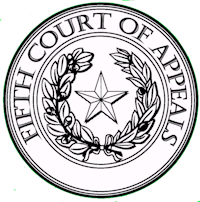 A construction company sued for nonpayment; on the eve of trial, the defendants objected to the admission of damages evidence because an earlier request for disclosure, served with the answer, had not been answered. The Fifth Court affirmed the trial court’s decision to exclude, noting a lack of evidence either as to good cause or a lack or prejudice (it is not clear from the opinion what other discovery may have been done: “Construction offered no evidence to demonstrate the absence of unfair surprise or prejudice. Indeed, there is nothing to suggest that Defendants had enough evidence to reasonably assess settlement, avoid trial by ambush, or prepare rebuttal to expert testimony.” (citation omitted). F 1 Construction v. Banz, No. 05-19-00717-CV (Jan. 20, 2021) (mem. op.)
A construction company sued for nonpayment; on the eve of trial, the defendants objected to the admission of damages evidence because an earlier request for disclosure, served with the answer, had not been answered. The Fifth Court affirmed the trial court’s decision to exclude, noting a lack of evidence either as to good cause or a lack or prejudice (it is not clear from the opinion what other discovery may have been done: “Construction offered no evidence to demonstrate the absence of unfair surprise or prejudice. Indeed, there is nothing to suggest that Defendants had enough evidence to reasonably assess settlement, avoid trial by ambush, or prepare rebuttal to expert testimony.” (citation omitted). F 1 Construction v. Banz, No. 05-19-00717-CV (Jan. 20, 2021) (mem. op.)
Monthly Archives: January 2021
 A late discovery supplementation may be allowed if the party shows good cause and a lack of unfair surprise. The Fifth Court reversed a trial court ruling about an expert supplementation when, inter alia: “The record shows (1) Mr. Longeway’s report was based almost entirely on his inspection of the job site’s deactivated electrical lines and (2) the lines’ deactivation could be performed only by the electric delivery company and was not completed until November 30, 2018. Appellants received Mr. Longeway’s report on January 11, 2019, and filed their motion for reconsideration and new trial, with that report attached, several days later. Weekley’s response to the attempted late designation focused only on [another expert’s] report and did not specifically address good cause or unfair surprise or prejudice as to Mr. Longeway.” Paniagua v. Weekley Homes, No. 05-19-00439-CV (Jan. 13, 2021).
A late discovery supplementation may be allowed if the party shows good cause and a lack of unfair surprise. The Fifth Court reversed a trial court ruling about an expert supplementation when, inter alia: “The record shows (1) Mr. Longeway’s report was based almost entirely on his inspection of the job site’s deactivated electrical lines and (2) the lines’ deactivation could be performed only by the electric delivery company and was not completed until November 30, 2018. Appellants received Mr. Longeway’s report on January 11, 2019, and filed their motion for reconsideration and new trial, with that report attached, several days later. Weekley’s response to the attempted late designation focused only on [another expert’s] report and did not specifically address good cause or unfair surprise or prejudice as to Mr. Longeway.” Paniagua v. Weekley Homes, No. 05-19-00439-CV (Jan. 13, 2021).
Thi s is a crosspost from 600Hemphill, which reviews business cases in the Texas Supreme Court. This case originated from the Fifth Court.
s is a crosspost from 600Hemphill, which reviews business cases in the Texas Supreme Court. This case originated from the Fifth Court.
In a per curiam opinion issued without argument, the Texas Supreme Court reminded that it really meant its holding in Pike v. Texas EMC Management LLC, about the distinction between standing and capacity, as applied to the question whether a particular injury is suffered by the named plaintiff or the relevant business entity. Cooke v. Karlseng, No. 19-0829 (Jan. 22, 2021).
This is a cross post from 600Hemphill, which follows business cases in the Texas Supreme Court:
On January 15, the Texas Supreme Court granted an emergency stay in In re: Enven Energy Corp., No. 21-0030, as to the denial of a continuance motion involving COVID-19 issues. The parties’ briefs can be reviewed here, and the merits of the mandamus petition remain pending before the Court.
 The Fifth Court concluded that a fact issue was raised on the issue of a contractor’s actual exercise of control based on this evidence: “Leobardo Maravilla’s testimony that Mr. Holmes ‘will always demand to me to work a certain way,’ ‘didn’t allow me to freely do what I know how to work,’ required him to purchase new scaffolding, took him to the building supply store, directed him to buy the aluminum scaffolding his employees were using on the day of the accident, and told him to stay at the project site and continue working even though Mr. Holmes left due to weather conditions,” bolstered by an expert report stating that “while Leobardo Maravilla’s crew continued their work in the ongoing ‘thunderstorm,’ there were numerous lightning strikes in the area that likely energized the rebar in the wet concrete on which they were standing while holding onto the metal scaffolding, thus causing their injuries.” Paniagua v. Weekley Homes, No. 05-19-00439-CV (Jan. 13, 2021) (mem. op.).
The Fifth Court concluded that a fact issue was raised on the issue of a contractor’s actual exercise of control based on this evidence: “Leobardo Maravilla’s testimony that Mr. Holmes ‘will always demand to me to work a certain way,’ ‘didn’t allow me to freely do what I know how to work,’ required him to purchase new scaffolding, took him to the building supply store, directed him to buy the aluminum scaffolding his employees were using on the day of the accident, and told him to stay at the project site and continue working even though Mr. Holmes left due to weather conditions,” bolstered by an expert report stating that “while Leobardo Maravilla’s crew continued their work in the ongoing ‘thunderstorm,’ there were numerous lightning strikes in the area that likely energized the rebar in the wet concrete on which they were standing while holding onto the metal scaffolding, thus causing their injuries.” Paniagua v. Weekley Homes, No. 05-19-00439-CV (Jan. 13, 2021) (mem. op.).
Equitable doctrines such as unjust enrichment, unclean hands, and quasi-estoppel are frequently cited, but by their nature, they are difficult to define with specificity. An uncommon “data point” about unjust enrichment appeared in Hawkins v. Jenkins, No. 05-19-01396-CV (Jan. 8, 2021) (mem. op.) The trial court awarded roughly $10,000 in connection with certain home improvements; the Fifth Court affirmed, noting that “the record contains evidence that appellant reaped a financial benefit from the improvements: she sold the house for $77,000 above its value before appellees made the improvements.”
The majority opinion in Return Lee to Lee Park v. Rawlings, No. 05-19-00456-CV (Dec. 28, 2020), which affirmed a judgment that allowed the removal of two high-profile Confederate memorials from City of Dallas land, summarized the current state of appellate-waiver law after recent Texas Supreme Court opinions:
“Appellate briefs ‘are meant to acquaint the court with the issues in a case and to present argument that will enable the court to decide the case.’ Tex. R. App. P 38.9. Briefs are to be liberally, but reasonably, construed so that the right to appeal is not lost by waiver. Horron v. Stovall, 591 S.W.3d 567, 569 (Tex. 2019) (per curiam). Appellate courts have the authority to request additional briefing on an unbriefed issue that was fairly included in or inextricably entwined with a briefed issue. St. John Missionary Baptist v. Flakes, 595 S.W.3d 211, 216 (Tex. 2020) (per curiam). However, appellate courts retain authority and discretion to deem an unbriefed point waived in lieu of requesting additional briefing. Horton, 519 S.W.3d at 569–70. Whether that discretion has been properly exercised depends on the facts of the case. Id.”
The question in State of Texas v. Mesquite Creek Devel., Inc.. was whether the trial court erred in dismissing a condemnation case based on the state’s failure to timely disclose an appraisal. The Fifth Court observed: “The supreme court utilizes four principles to determine whether the legislature clearly intended a statute to set jurisdictional requirements: “(1) the plain meaning of the statute, (2) whether the statute contains specific consequences for noncompliance, (3) the purpose of the statute, and (4) the consequences that would result from each construction.” Applying those factors, the Court found that this issue was not jurisdictional. No. 05-19-00028-CV (Dec. 31, 2020).
 Three new Justices join the Fifth Court at the start of 2021 –
Three new Justices join the Fifth Court at the start of 2021 –
- Hon. Bonnie Lee Goldstein, who joins the Court after service since 2014 on the 44th District Court of Dallas County;
- Hon. Craig Smith, who served since 2006 on the 192nd District Court of Dallas County; and
- Hon. Dennise Garcia, who has presided over the 303rd District Court of Dallas County since 2004.
The 44th and 192nd are civil district courts and the 303rd is a family district court. When the pandemic subsides, none of the new Justices will have to change their commutes, as all three of these courts are located in the George Allen courthouse.